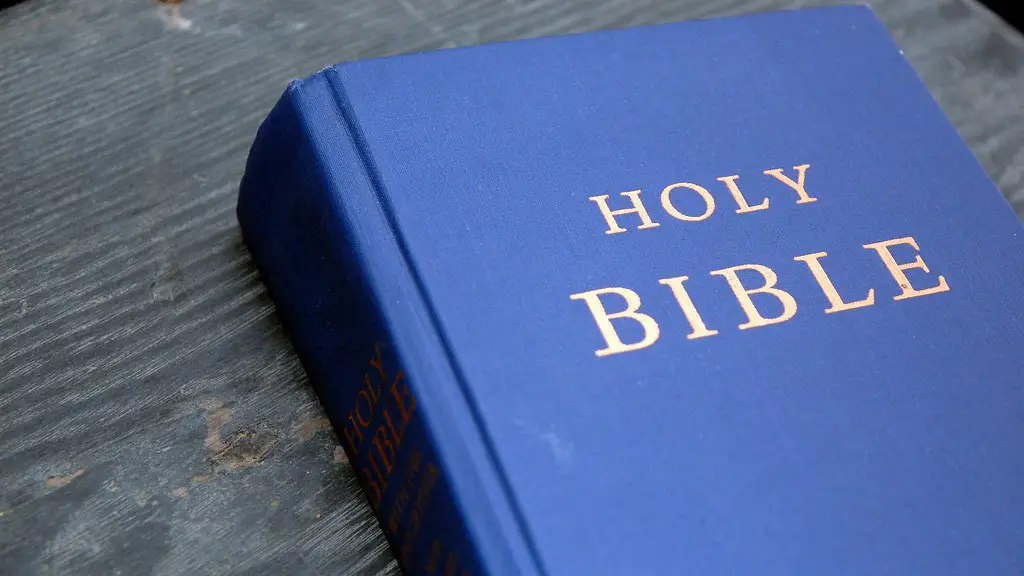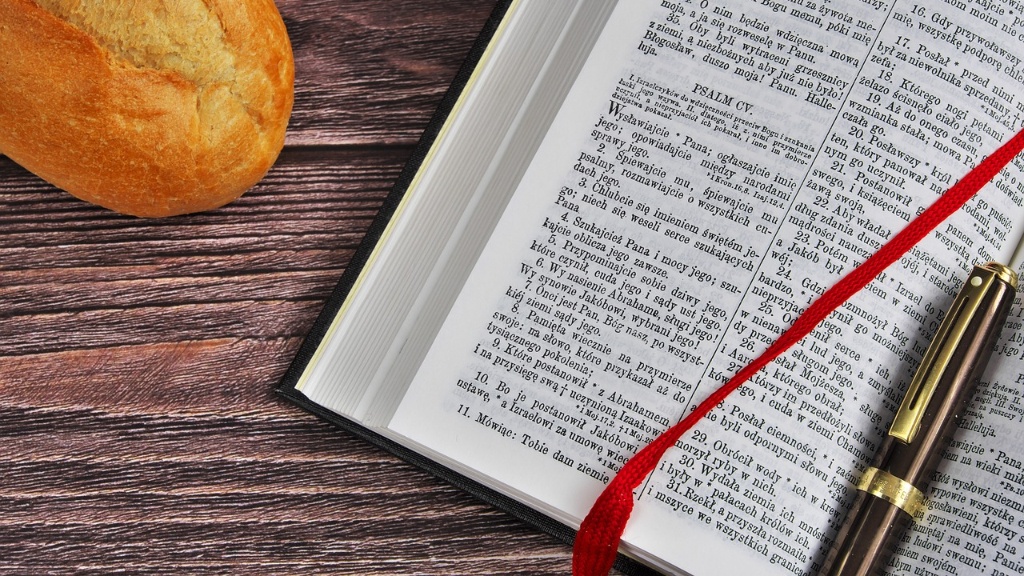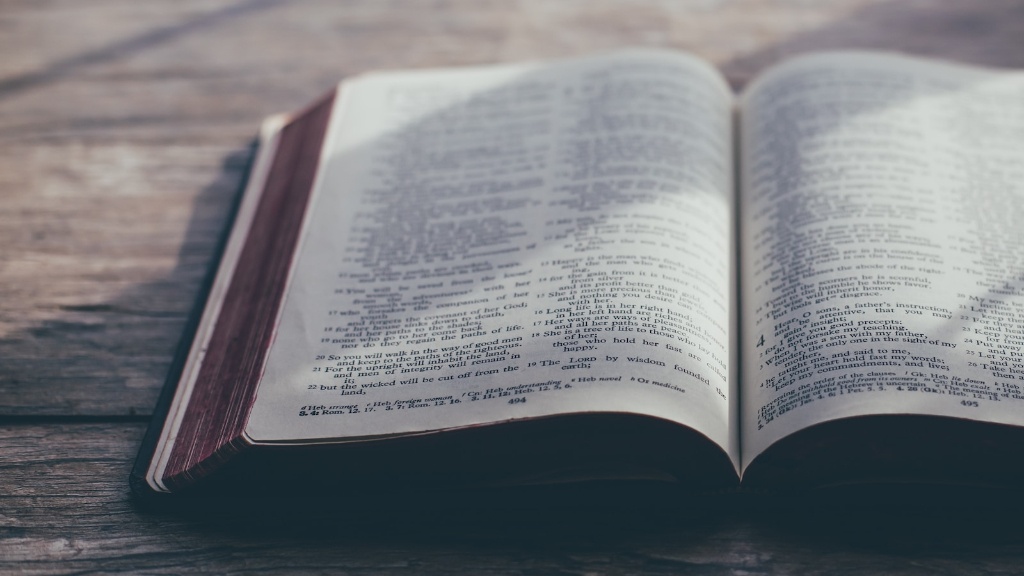Does The Bible Say Homosexuality Is Wrong?
The Bible is widely seen as condemning homosexuality. But is this true? The answer is more complex than a simple yes or no, and is a matter of much debate even in the most religious circles. There are passages in the Bible that appear to condemn homosexuality, but many scholars, theologians, and religious experts argue that such passages are misinterpreted and out of context.
One of the most famous passages said to denounce homosexuality is Leviticus 18:22. This passage says that “You shall not lie with a male as with a woman; it is an abomination.” To many, this reads as an explicit condemnation, but to others, it is open to interpretation. Some theologians have argued that the abomination referred to in the passage might have been the practice of pagan cults and worship of false gods such as Baal and Asherah, rather than an absolute decree against any and all homosexual relationships.
In the New Testament, Romans 1:26-27 is said to be a condemnation of homosexuality. In it, Paul states that homosexual desires are “contrary to nature” and that those who practice homosexual behavior will not “inherit the kingdom of God.” Here again, though, some scholars have argued that the passage is not addressing a specific prohibition on homosexuality but rather the wider issue of idolatry, again referencing pagan cults that supposedly engaged in homosexual activity. They also posit that Paul was referencing the Greek practice of pederasty, or the sexual exploitation of adolescents, which does not resemble modern relationships between consenting adults of the same sex.
There are also other intimations of condemnation throughout the Bible, such as 1 Corinthians 6:9, where with the term arsenokoitai is said to be a reference to homosexuality. But many scholars have argued that the term, while vague, was likely meant to describe “exploitive behavior in general, not just homosexuality,” and that it was not referring to anything like a modern gay relationship.
Finally, there are passages in the Bible that show a great deal of love and acceptance of LGBTQ people. It is not just passages that fit with the modern view of homosexuality that some scholars interpret as being tolerant; there was a great deal of acceptance and celebration of what are believed to be same-sex relationships in both the Old and New Testaments. One example is the story of Ruth and Naomi, two women in the Old Testament who were linked together not only as just close friends, but as “mother” and “daughter” respectively. This type of relationship was known in ancient times as a heterosexual marriage and so was seen as an example of how deeply committed same-sex relationships can be.
No Clear Cut Answer
At the end of the day, it is important to note that the answer to “Does the Bible say homosexuality is wrong?” is not a simple yes or no. Many theologians, religious scholars, and members of the LGBTQ community have argued that there is no blanket condemnation of homosexuality in the Bible, but rather a collection of passages that are subject to interpretation and which reflect the cultural context of their writing. What is clear is that God loves people of all sexualities and that any meaningful interpretation of the Bible must take this into account.
Homosexuality In Religions Other Than Christianity
The Bible is not the only holy book that contains passages that seem to indicate disapproval of homosexuality. The Torah, the Muslim Koran, and the sacred Hindu texts, the Vedas, all contain passages that are interpreted as condemning homosexual behavior. However, despite the seemingly negative view of homosexuality found in these ancient books, many religions have become much more accepting of different sexual orientations over time.
In Judaism, for example, there is significant debate on the issue that has led to a greater acceptance of homosexuality. The Reform and Reconstructionist branches of Judaism, as well as other progressive denominations, recognize same-sex relationships and even perform ceremonies to mark their beginning. Similarly, in Hinduism, the idea that homosexuality is a “sin” is increasingly being rejected by practitioners. Hindu temples are now welcoming to LGBTQ visitors, and same-sex relationships are becoming more accepted. Even in Islam, a religion that is often thought of as particularly hostile to homosexuality, there is a movement advocating for greater understanding and acceptance. Some Islamic scholars are taking a flexible interpretation of the Koran and declaring that homosexual behavior is not necessarily forbidden.
Homosexuality In The Secular World
Society as a whole is becoming more accepting of gender and sexual diversity, and laws are changing to reflect this. Gay marriage is now legalized in many countries, and attitudes toward LGBTQ people are becoming more open. Similarly, gender fluidity has seen a surge in visibility and acceptance, as have bisexuality and polyamory. This shift in attitude toward diversity is an indication that society is ready to embrace people of all sexual orientations and gender identities.
Advances in science have also contributed to a greater acceptance of homosexuality. Studies have shown that being LGBTQ is not something that can “be fixed” and is, instead, a biological reality for a certain percentage of the population. This has opened the door for people to be more accepting of those who identify as LGBTQ, as well as providing a greater understanding of what it means to be homosexual.
Though the debate on the morality of homosexuality is far from settled, it is clear that Western society is slowly becoming more accepting. And while religious texts may still be seen as condemning homosexuality, many churches and religious communities are beginning to view it differently, recognizing the human dignity of all their members and embracing them and their relationships. This shift in attitude indicates that society is moving away from outdated and restrictive understandings of gender and sexuality, and towards a more inclusive, loving view.
Public Attitude And Perception Of Homosexuality
Despite the advances that have been made in terms of LGBTQ acceptance, there is still a long way to go. Throughout history, LGBTQ people have been discriminated against and even criminalized for who they are, making acceptance a slow and difficult journey. Moreover, the public is still sometimes hostile towards homosexuality, even in countries where it is accepted.
One of the biggest issues that the LGBTQ community faces is a lack of representation in both the media and society. This lack of representation contributes to perpetuating negative stereotypes and public attitudes towards LGBTQ people. As such, it is important that LGBTQ visibility increases in all walks of life, and that more education is done to dispel the stereotypes and misconceptions of homosexuality.
Moreover, homophobia is still a reality that many LGBTQ people have to face on a daily basis. This can manifest itself in smaller, more subtle ways – such as uncomfortable stares or microaggressions – or in more overt acts of aggression and discrimination. For this reason, it is important to remember that LGBTQ people still face obstacles in their everyday lives and to recognize the struggles that they face.
LGBTQ Rights As Human Rights
At the heart of the issue of homosexuality and religion is the issue of human rights. LGBTQ people are human beings who are deserving of love, acceptance, and protection from harm, no matter what someone’s faith or beliefs may be. All people deserve to be treated with respect and dignity, and LGBTQ people are no exception. Ultimately, any religious text should be interpreted in a way that is respectful of the concept of human rights and that recognizes that LGBTQ people are no different than anyone else.
The modern world is making strides in understanding, acceptance, and support of the LGBTQ community. Laws are changing, society is becoming more inclusive, and people are coming together to celebrate and support LGBTQ people. The goal should be to ensure that everyone, regardless of sexual orientation or gender identity, is able to live a life full of love, acceptance, and respect.
LGBTQ Activism
LGBTQ activism is a powerful force for change. Throughout the years, LGBTQ activists have worked to push for laws and change public opinion so that homosexuality and other forms of gender and sexual identity can be accepted. These activists have highlighted the struggles that LGBTQ people still face and have fought to make sure that they are treated not just with tolerance, but with love and acceptance.
LGBTQ activists have also paved the way for things like same-sex marriage and LGBTQ-friendly policies in public schools. They have also raised awareness about issues like bullying and harassment, and also been a source of support for those in the LGBTQ community who may be struggling. It is through their hard work, dedication, and perseverance that the LGBTQ community has made the considerable progress that it has.
At the end of the day, it is clear that the LGBTQ community is a diverse and vibrant one. It is composed of individuals who come from different backgrounds, faiths, and walks of life. And it is this diversity that is one of the LGBTQ community’s greatest strengths. It is through this diversity that the LGBTQ community can create an even stronger, more inclusive, and more loving world for everyone.




